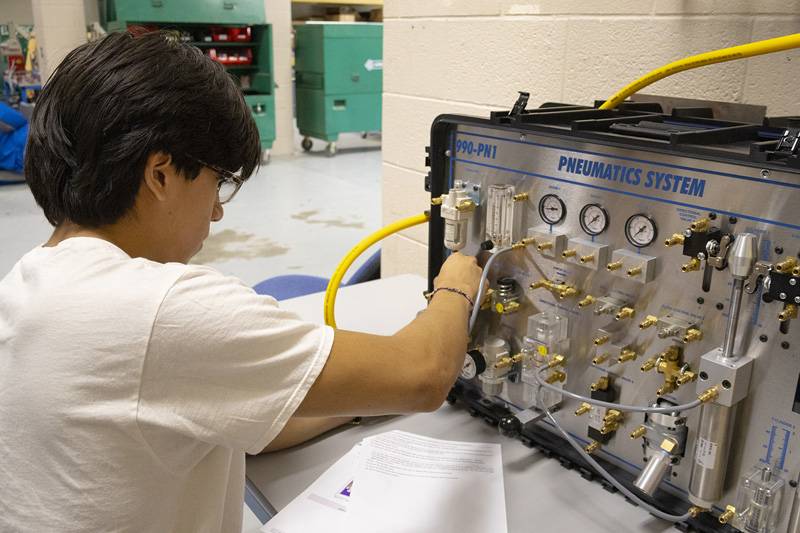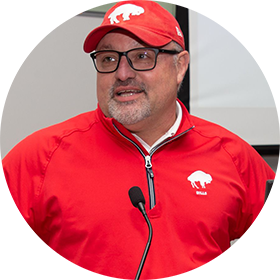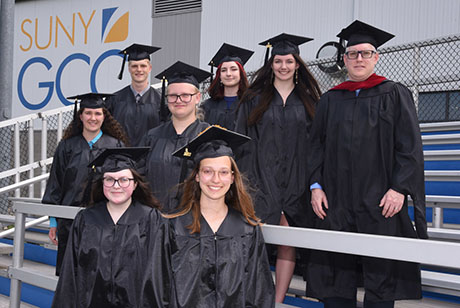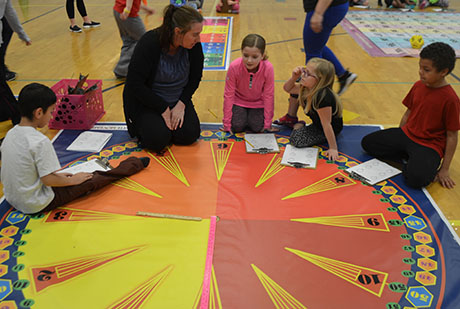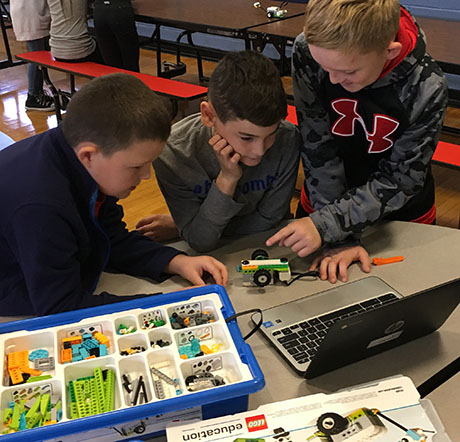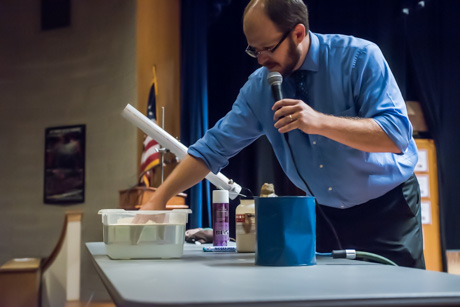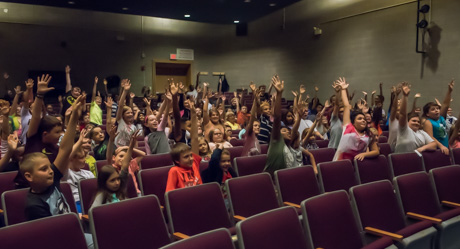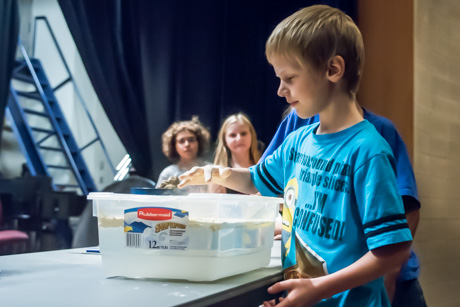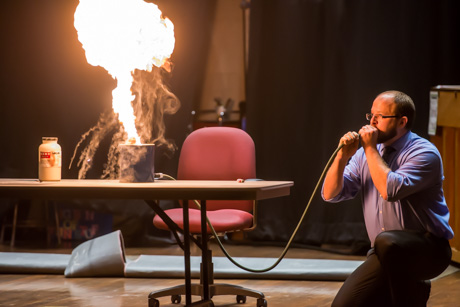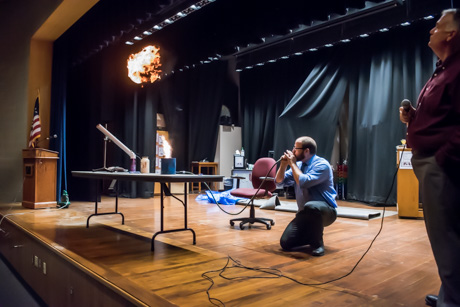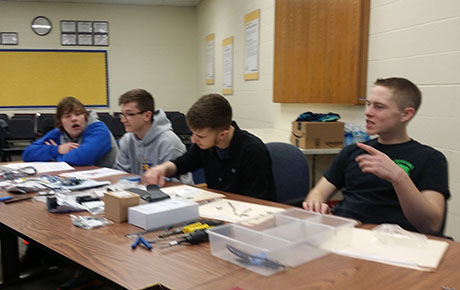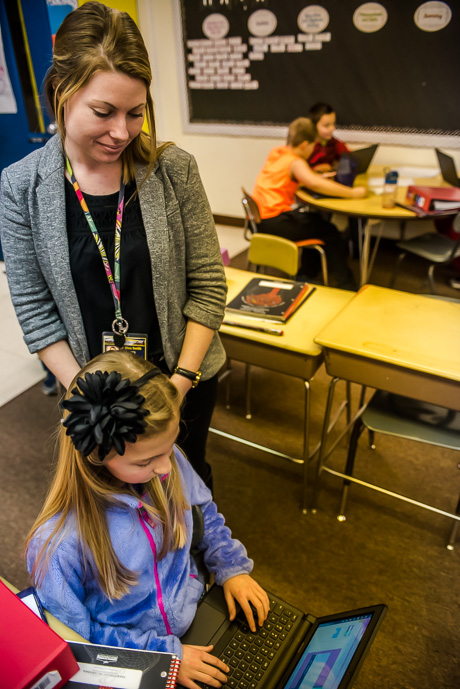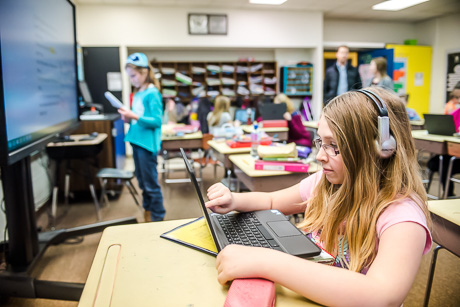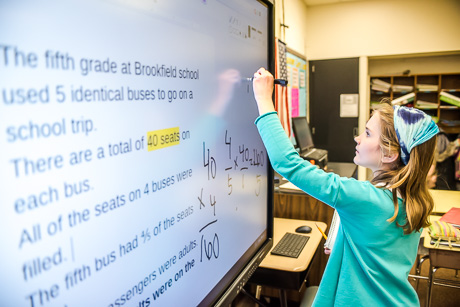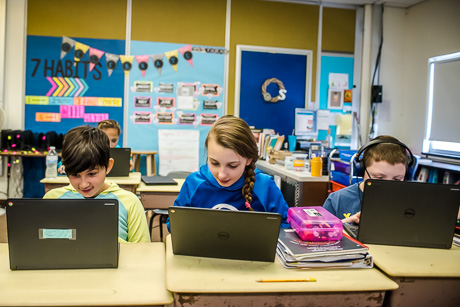By all counts, the Fourth Grade Innovators STEAM (Science, Technology, Engineering, Arts, and Math) Program that was started at Batavia’s John Kennedy Intermediate School this year is a huge success – whether being measured by student enthusiasm, teacher observation of growing skills, or meaningful partnerships with the community. It’s no surprise, then, that plans are in the works for next year, including greater expansion into the younger grades at John Kennedy.
What did come as a surprise, however, was recognition from beyond our community. The Program won the Elementary STEM (Science/ Technology/ Engineering/ Mathematics) Innovation Award from The Finger Lakes STEM Hub and was honored at a reception in early May at St. John Fisher College. The Hub is the regional arm of the Empire State STEM Learning Network -- a statewide, community‐led collaborative that works to advance STEM education.
The Finger Lakes STEM Hub covers a nine-county area (Genesee, Livingston, Monroe, Ontario, Orleans, Seneca, Wayne, Wyoming and Yates counties) and consists of leaders from K-12 education, higher education, business, government, and community organizations who work together to advance the interdisciplinary teaching and learning of STEM disciplines with the goal of sustaining economic vitality. As part of their commitment to students, they identify and highlight exemplary STEM activities and events that are engaging, exciting, and empowering for students.
JK’s STEAM Program was recognized as being such a program.
Evolving out of a request last summer by fourth grade teacher Melissa Calandra to do some STEAM activities once a month, JK principal Paul Kesler was quick to give his approval and support.
“STEAM is so important for young students,” said Kesler, “basically because science, technology, and math are really lifelong concepts that students are going to need in whatever job that they have, but especially because so many jobs in the future are going to have a math and science emphasis. It’s important that our students gain experience now.”
To help bring the idea into fruition, they were joined by fourth-grade teacher Jennifer Sloan, ACE teacher Karen Shuskey, and librarian Katelin LaGreca.
“This team,” Kesler said, “really got the ball rolling and, as it got going, we were able to start partnering with GCEDC (Genesee County Economic Development Center) in terms of bringing local businesses in to help us and see how we can partner with them.”
In its promotion of regional economic development and growth, the GCEDC advocates for the education and skill development that students need to equip themselves for meeting that growth. Their help and support was extremely valuable to the planning and implementation of the STEAM opportunities for the JK students.
Each month, all of the fourth graders took part in the planned STEAM opportunity. Through the year, these activities helped students explore DNA and living systems, structures and design, robotics, coding/computer programming, graphic design, 3D printing, electrical circuits, math and movement, robotics in agricultural, and ecology/environmentalism. Nearly every hands-on activity was introduced to the students by a professional from the community who had expertise in that area, so the students were also introduced to an array of careers.
It was one of the community presenters who told the team about and encouraged them to apply for the STEM Hub award. Despite coming at a particularly busy time of the school year, they were so proud of the program that they wanted to make the time to enter the competitive application process.
Much to their delight, they won!
While it was very exciting to be held up as an example of fruitful partnerships with the community that help students learn about and grow in an increasingly needed skill set, it is even more exciting to contemplate the future of JK STEAM.
“For next year, we’re looking at an expansion to include third and second graders,” Kesler said. “We’re opening up a STEAM lab next year. Melissa Calandra is going to lead that, and it will allow us to offer activities to students once a week versus once a month. We’re really excited about that!”
“My hope,” he continued, “is that students will see how interesting science, technology, and math can be, and, in the long-term, that they recognize the opportunities coming available to them in the STEAM field.”

